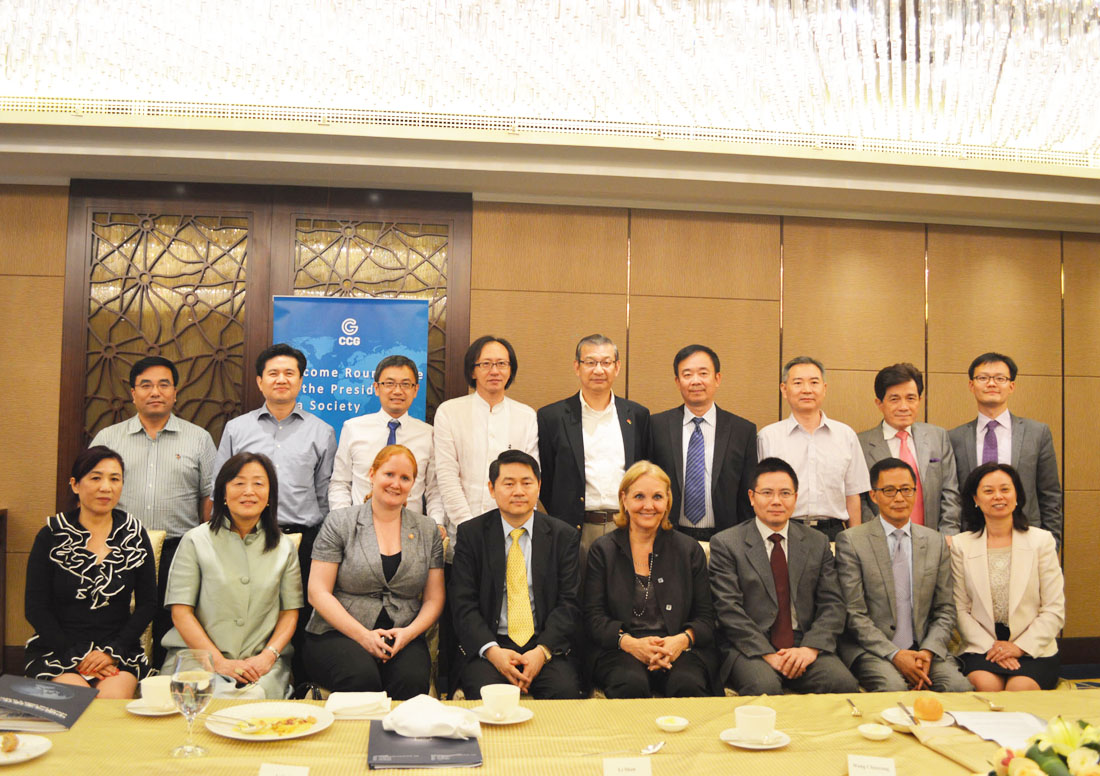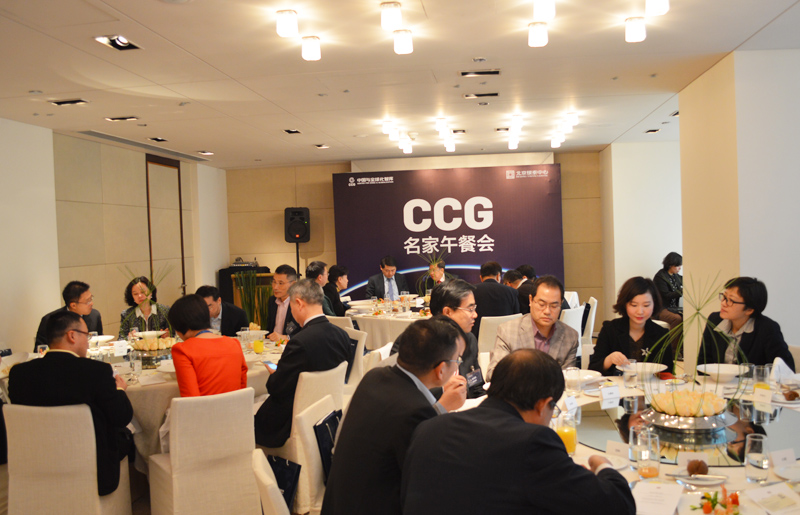CCG hosts “Future Direction of China” luncheon
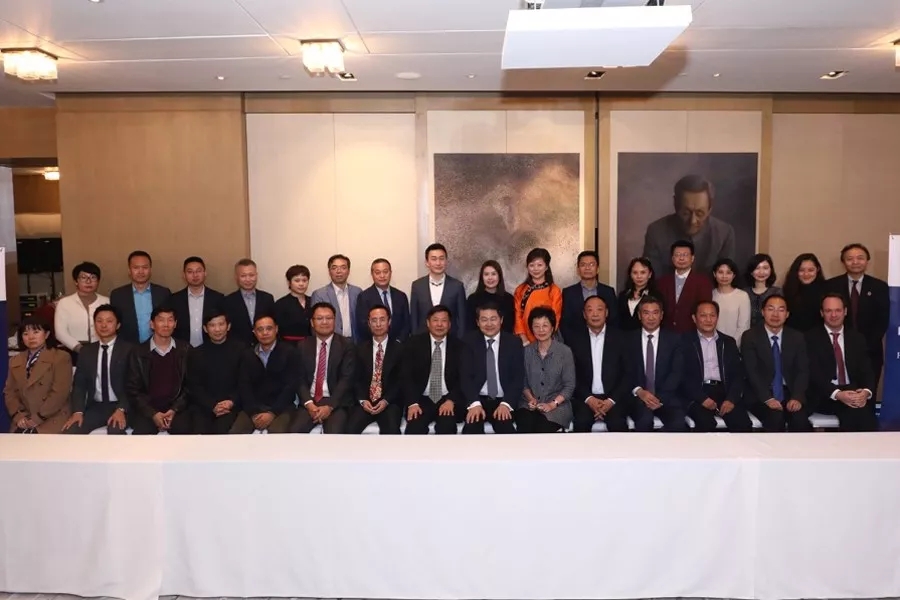
On December 2, 2019, the Center for China and Globalization (CCG) and Bank of America-Merrill Lynch co-hosted a luncheon in Beijing. Under the theme Future Direction of China, around 40 participants from various fields of including business, industry, academia and research shared their opinions on issues such as trends in the global economy and Sino US trade relations. Miao Lu, secretary-general of CCG, hosted the event.
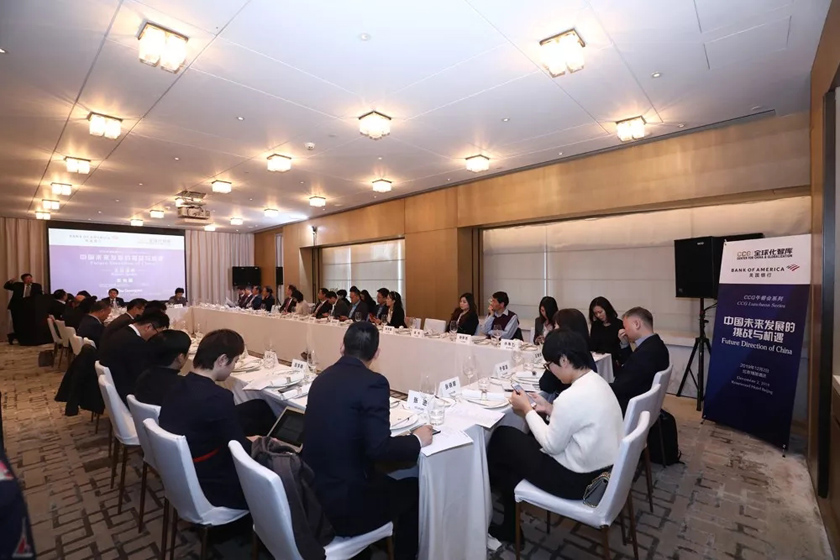
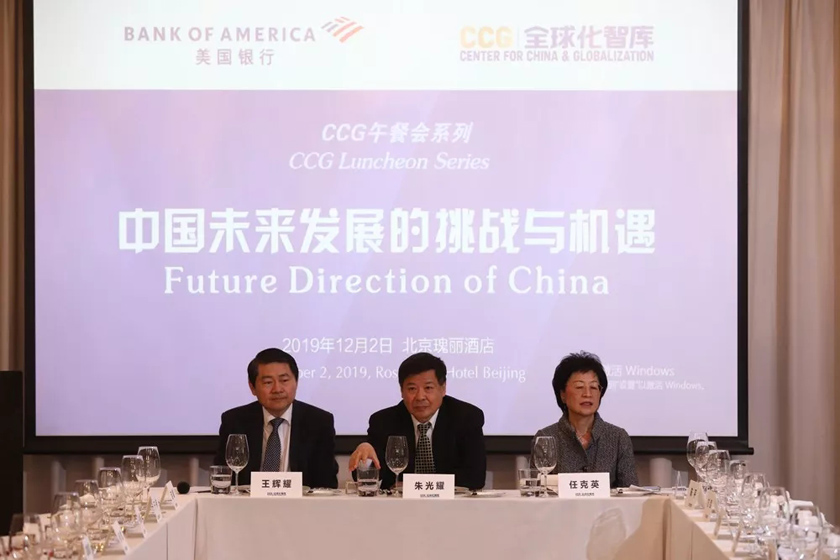
CCG President Wang Huiyao, former Vice Minister of Finance and CCG Advisor Zhu Guangyao, as well as Chairman of China for Bank of America-Merrill Lynch and CCG Vice Chair Margaret Ren made speeches in the event.
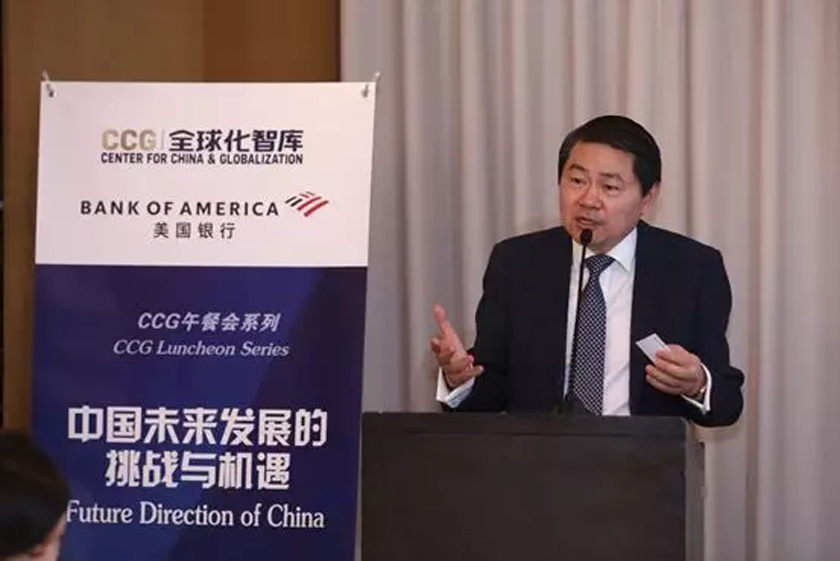
Time to learn from the past and keep moving forward
Wang stated that communication between China and the United States has become increasingly essential. He mentioned that China has initiated a series of policies that benefit both China and the United States in recent years. For instance, China has been committed to keeping to open up its financial sector. There are also an increasing number of foreign invested banks that can operatd with greater flexibility in China, driving healthy competition with domestic banks.
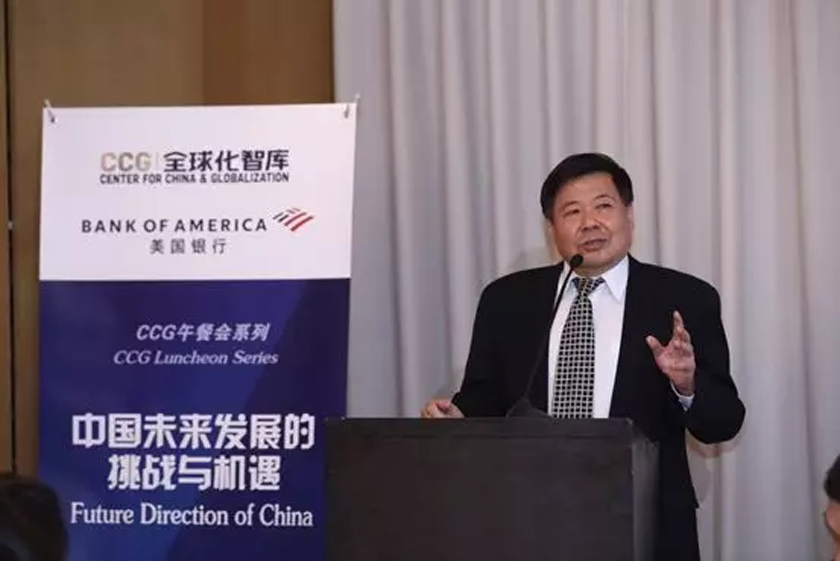
Four pathways to deal with challenges in the world’s economic system
Zhu Guangyao stated that the global economy is growing at the slowest rate since the financial crisis. The International Monetary Fund (IMF) predicts that the global economy will gradually recover from 2019 to 2020, with global economic growth at 3.2% and 3.5% in 2019 and 2020 respectively. However, the IMF has lowered its global economic growth forecast for 2019 to 3%, which is the fourth consecutive downward adjustment.
Zhu emphasized four aspects that should be focused on to deal with challenges in the world’s economic system:
1) maintain the multilateral trade system;
2) promote the establishment of international rules for the digital economy,
including digital tax, digital currency and digital cash;
3) coordinate macroeconomic policies, especially currency and finance;
4) deal with the challenges in geopolitics.
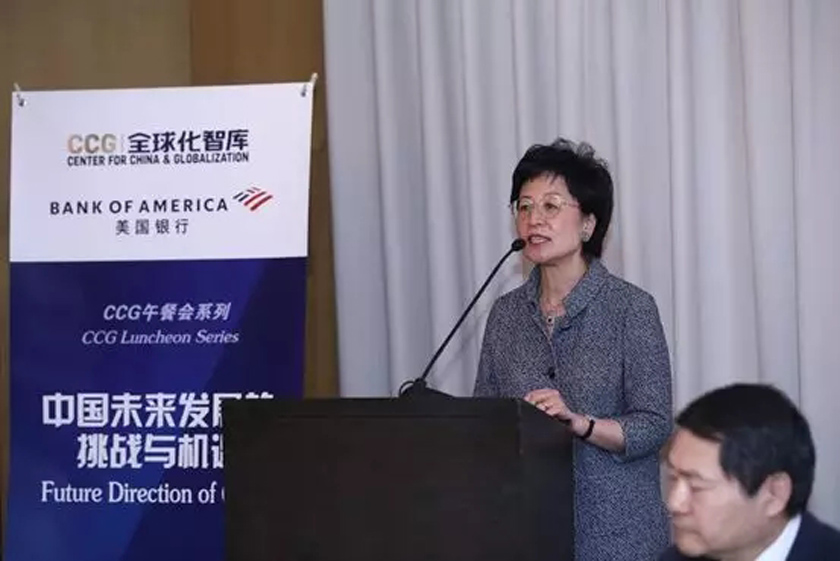
Ten trends of development in the future
Margaret Ren stated that China and the world are becoming more interconnected. It is essential to figure out China’s role in global affairs. She highlighted ten future trends:
1) Globalization will reach its peak in the next decades;
2) There is the possibility of negative economic growth;
3) Environmental challenges, such as global warming, will pose unprecedented threats to the survival of humankind;
4) With the increasing pace of population ageing, the current world population is expected to increase by 1 billion;
5) Network sovereignty will be a big issue;
6) The world will have more than 500 billion objects connected. The generation and analysis of data will develop greatly, bringing new opportunities and challenges;
7) Artificial intelligence and robots will replace many transitional human tasks, by replacing 50 % of all jobs;
8) Biotechnology will face challenges;
9) Space exploration will develop rapidly;
10) The trend of moral capitalism will rise. An increasing number of individuals will pay more attention to the issue of inequality. The value of all stakeholders will be reexamined.
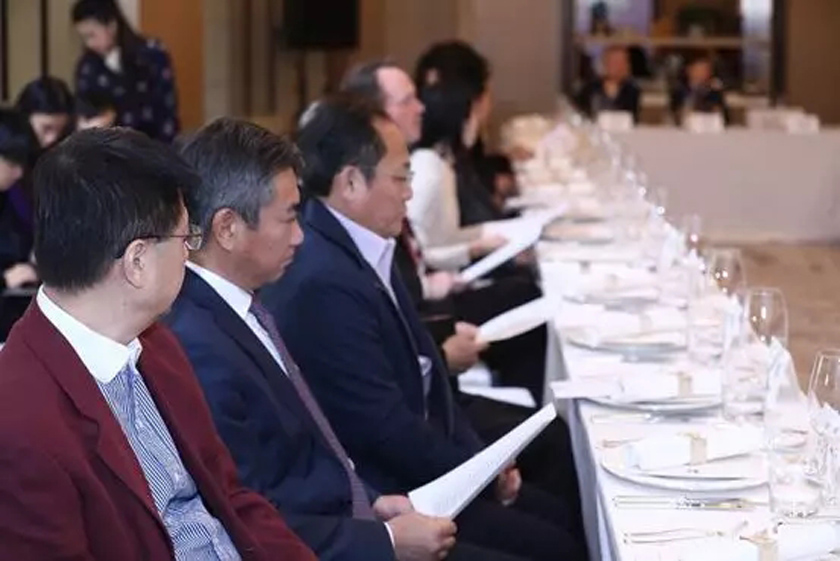
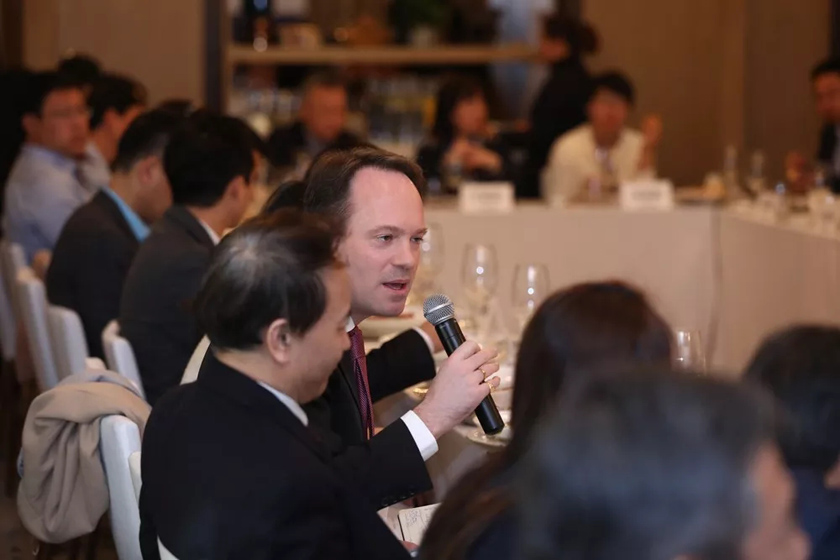
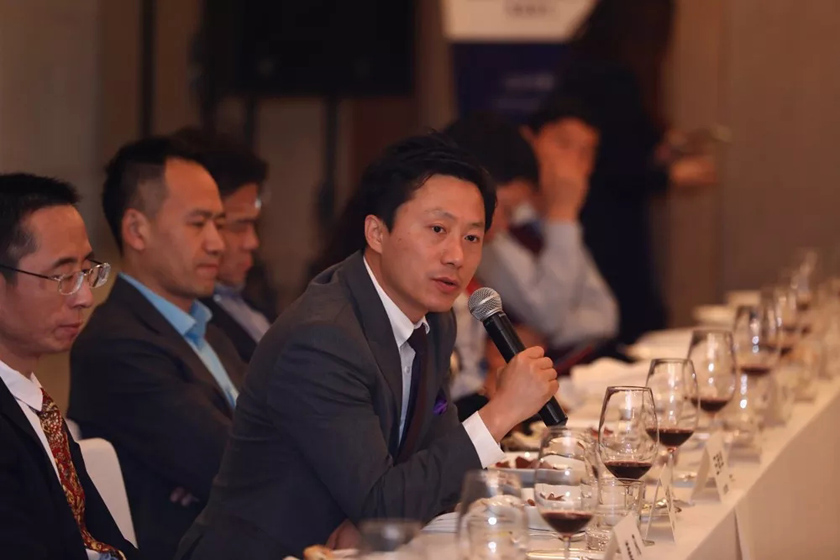
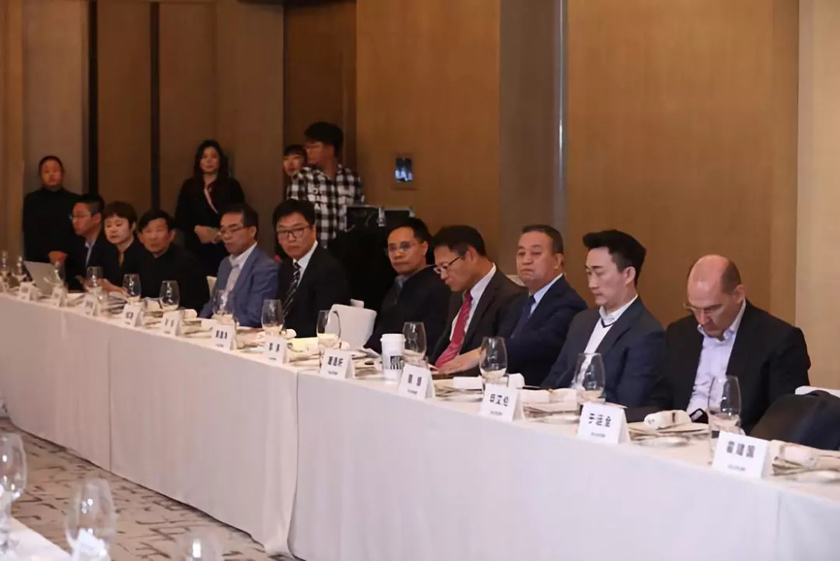
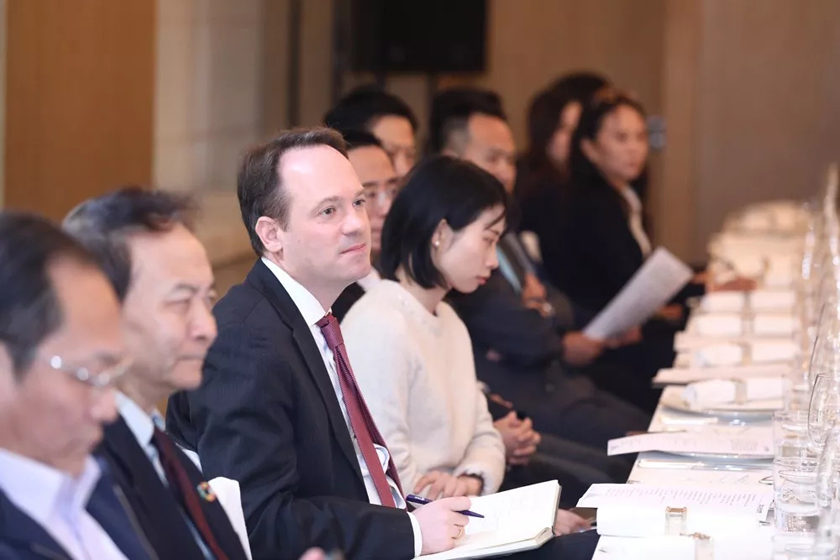
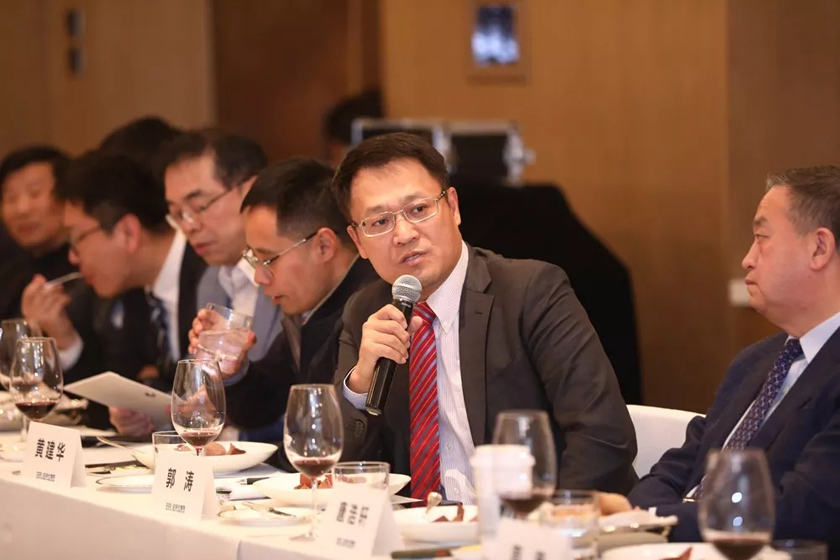
Participants in this event also shared their views on topics such as China’s financial market and the Sino-US trade relations. They reached a consensus that to address the current challenges, China should open wider to the outside world and maintain communication to promote a better understanding.
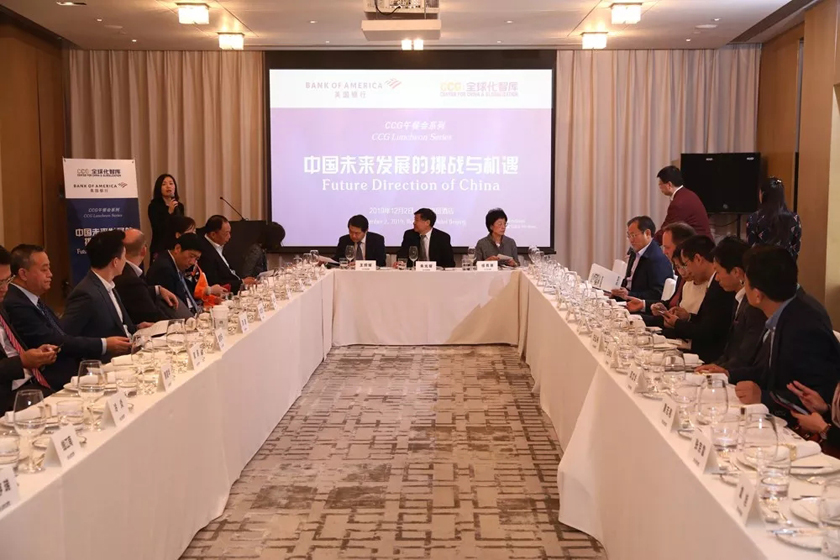
Participants included Alan Beebe, president of AmCham China; Adam Dunnett, secretary-general of European Chamber of Commerce in China; Huo Jianguo, former president of Chinese Academy of International Trade and Economic Cooperation and senior fellow of CCG; Yang Yi, former vice minister of Economic Affairs Department of the Liaison Office of the Central People’s Government in HK SAR, former director of MOFCOM Bureau of Industry Injury Investigation and senior fellow of CCG; Cui Fan, professor at the School of Trade and Economics, University of International Business and Economics (UIBE) and nonresident senior fellow of CCG; Guo Tao, vice president of Government Affairs, Qualcomm; Tang Haoxuan, chairman of FUETA and member of CCG Senior Council; Romeo Wang, CEO of Greater China, Euromoney Institutional Investor PLC; Yu Wei, chairman of Global InfoTech Co., Ltd; Zhou Hao, founder and CEO of QuantGroup and member of CCG Senior Council; Catherine Lv, partner of Stat Platinum Capital; Huang Zhixiang, vice president of External Affairs, Greater China Region, Universal Pictures; Fang Jun, executive vice president of China Life; CHEN Ping, founder of Greenrock Capital; Deng Wenhua, chairman of China Shandong International Economic & Technological Cooperation Group Ltd; Hou Lijun, senior director of Public Affairs, Tencent Beijing; Huang Jianhua, president of Huajun Group; Qin Min, vice president of Mars China; Qiu Yufeng, CEO of ZorpiaRobot and member of CCG Senior Council; Michael Sun, managing director and president of China Music World; Wang Weijia, director of Government Affairs, Greater China Region, Dell Technologies; Jacky Wang, founder and chairman of United Capital; You Na, managing director of Admiralty Harbour Capital Limited; Yu Jianbo, deputy general manager for Public Relations and Communications of Heng Chang; Yu Yunquan, dean of Academy of Contemporary China and World Studies; Zhang Jin, director for Public Policy and Strategy of PepsiCo Greater China; Zhang Jinglei, founder of Xieli Healthcare; Afee Zhang, director of Business of Event Bank, and Zhao Xinjin, investment director of ExxonMobil (China) Investment Co., Ltd, and Zou Hengrui, chairman of Henry Group and CCG Senior Council Member.
About CCG Luncheon
CCG luncheons are a high-end communication platform for domestic entrepreneurs and industry elites in China to communicate with local and international policymakers, scholars, and peers.
CCG luncheons have been held since 2015, providing a unique think tank platform to discuss topics around the theme of “China and Globalization,” including domestic and foreign policy, international development, global markets, and the latest innovations in industry. CCG regularly invites government decision-makers, industry leaders, well-known scholars or industry leaders to conduct keynote speeches or round-table discussions, exploring China’s opportunities and challenges in the process of globalization, providing suggestions for the development of China and globalization, and inviting mainstream media for in-depth reporting. CCG summarizes recent popular topics before the meeting. After the meeting, CCG summarizes constructive ideas formed at the luncheon, transforms these ideas into suggestions, and reports to relevant national ministries and commissions.
LocationBeijing

